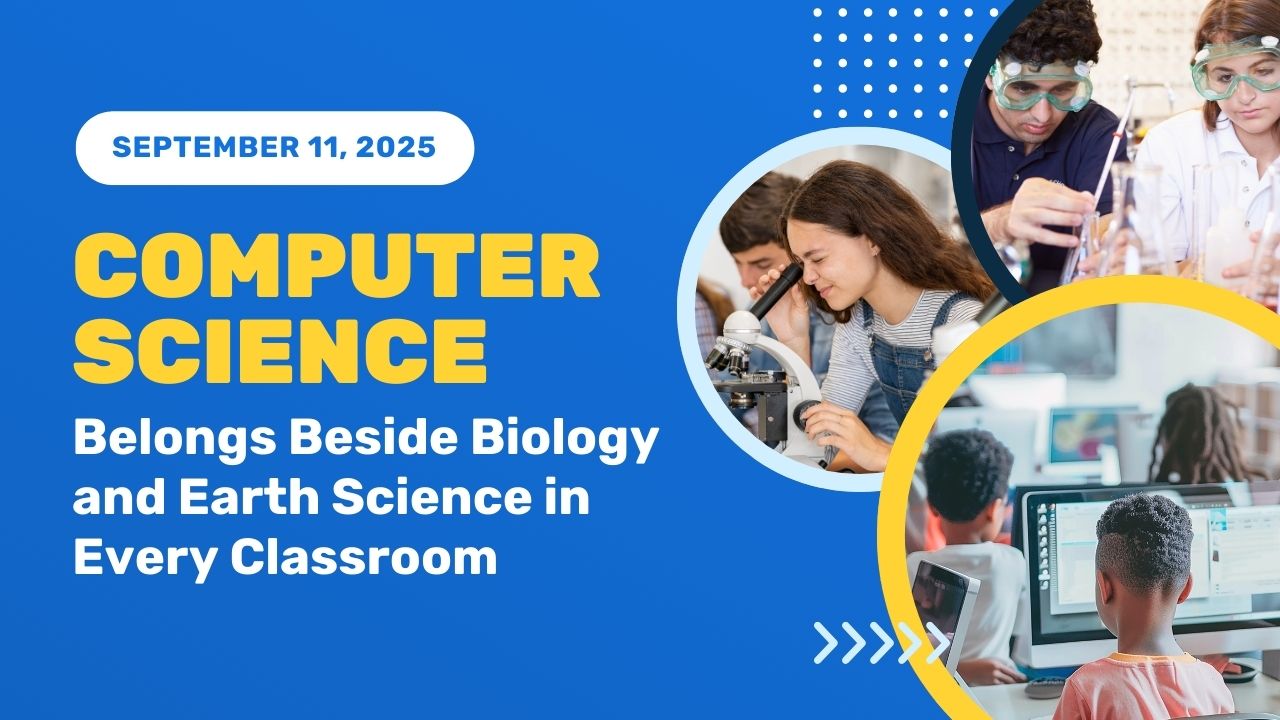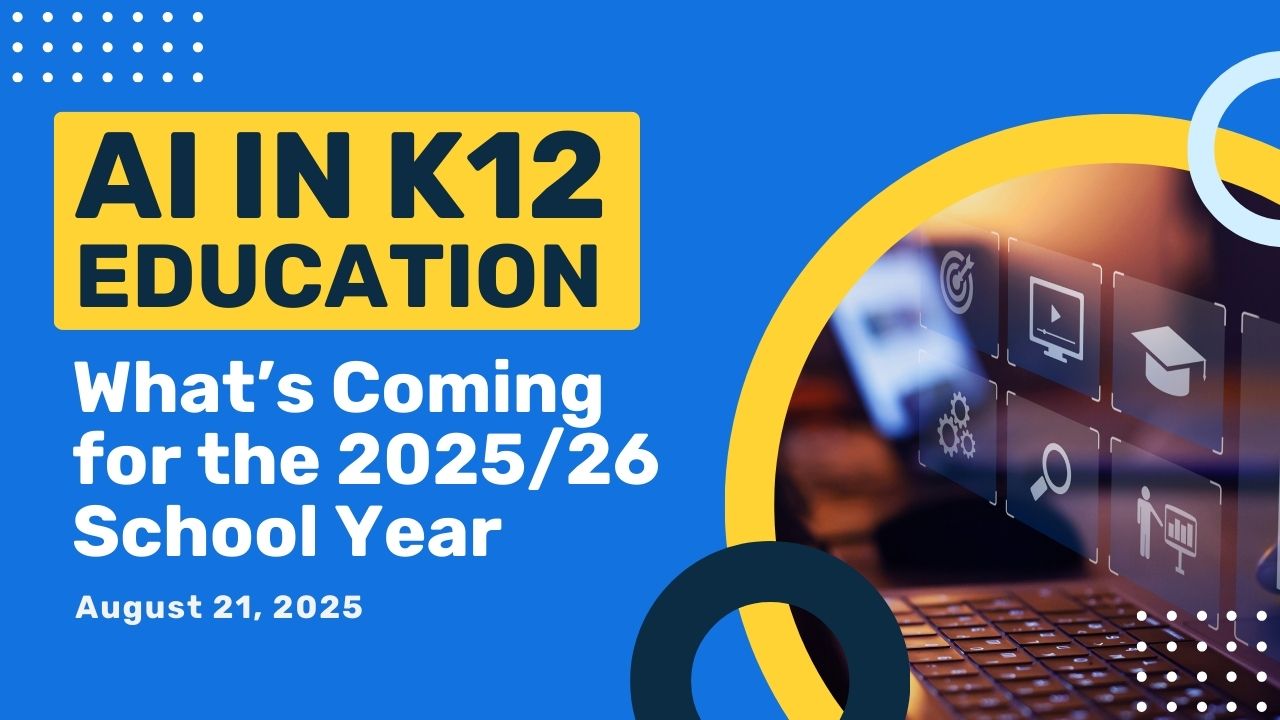You’re likely already aware of the growing opportunities now available with coding as a career path. The tech workforce’s job availability is undergoing rapid diversification, and for any student interested in working with computers, the future of the job market is looking bright.
But what about the students who don’t grow up to be software engineers? Is taking a collection of coding courses a waste of their time? Absolutely not. Even if students never become programmers, building computational thinking skills through coding will significantly benefit them.
Discover ten reasons why all students should learn to code.

1. Safety Net
As our demand for coding jobs increases with automation, coding can serve as an excellent safety job. According to FastCompany, coding might just become the most in-demand skill in many different industries in the future.
It’s difficult to predict what our job market will look like in the future, but with a higher-than-average market growth rate in programming jobs, it’s a safe bet that coding will remain a prominent career path for years to come. While learners work their way to achieving their dreams, coding can serve as a source of funding to get there.
2. Brain Training
As students discover computer science logic, they develop new and more efficient ways to solve problems! Programming effectively teaches students to break down complex problems into small pieces, design and test solutions, and optimize and debug solutions that don’t yet work perfectly. This way of thinking has been found to improve management and leadership skills especially. According to Forbes, “engineering has long been ranked as the most common undergraduate degree among Fortune 500 CEOs.”

3. Learning How to Learn
An education in coding and computer science can help students flourish in other disciplines! Learning to code helps train the brain to approach problems with more innovative solutions. Coding can help young learners develop structural thinking skills, persistence, and quicker and more efficient learning skills! Once a student begins to understand how to think like a computer, they’ll apply that reasoning to their other subjects.
Plus, because technology moves so fast, the skills involved in building software include being extremely resourceful, autonomous, and data-oriented. These skills are valuable no matter what industry students venture into.
4. Mathematical Motivation
It can be an uphill battle to motivate some young learners to engage in mathematics. Most teachers have heard, “But where will I use this?”. When computer science is in the bell schedule, mathematics has an additional practical application. For those students who catch the coding bug, you’ll likely find an increase in math-focused motivation.
As students improve their coding skills, they’ll discover new ways to apply mathematics and realize they’ll need to practice math to build more impressive projects. Instead of math being an abstract concept to conquer, coding makes it a tool that supplies instant gratification to the coder.

5. IT Advantage
Computer literacy has quickly grown into a necessary skill. No matter what career path students choose, they’ll need to be comfortable with keyboards, mice, applications, and hardware. The sooner they start, the easier it will be for them to adapt as technology advances.
With the implementation of code education, students will better understand how the many electronic devices around them work! With an education that focuses on computer science logic, not only will students find it easier to function with their wide variety of devices, but they’ll also be able to troubleshoot and fix issues. With computer literacy, students will be better at and more confident in making their repairs and communicating errors to repair experts.
6. Career Flexibility
With coding ability in a students’ toolbelt, they’ll find it easier to switch between careers. As a trade with many applications, having code as a skill can serve students as an excellent fallback option.
Code has also become a perfect way for students to get their foot in the door when they apply to new fields! Employers across many fields increasingly need more technically literate workers in their businesses to function. Setting students up with a foundation of coding knowledge is setting them up for success in the hiring process.

7. Swiss Army Knife
Knowing how to code is no longer a skill requirement restrained to computer science and application development fields. Coding skills can be an advantage in a myriad of professions.
Interested in learning more about alternative careers that need programmers? See 5 Surprising Coding Careers Outside of Tech.
8. Ambition Support
No matter what students want to do when they grow up, coding can help them get there. From website building to game creation to app development, when students have coding knowledge, they have a competitive advantage with their ambitions.
Creating software is not restricted to the same limitations as other forms of engineering. Students can build software almost immediately, so there's nothing stopping them from using their ambitions to fuel their growth.

9.Creative Outlet
For many students, code becomes an additional pathway in which they can channel their creativity. As they become more proficient at code, they also can practice creative problem-solving, experimentation, and even confidence in making creative decisions!
Additionally, software development intersects with creative fields like web design and game development. Students can use code and art together to express themselves in new and powerful ways. If students can imagine it, code can help them do it.
10. Social & Emotional Proficiency
Coding is a remarkably effective way to allow students to practice social and emotional skills. Individual coding projects help students learn self-management and self-awareness, two critical skills that will positively impact their lives as they grow up.
In team coding projects, coding becomes a unique way to practice communication and relationship skills, as collaboration on a single project requires much discussion, cooperation, and constructive feedback.
To learn more about how coding can improve social-emotional skills in students, see Coders Need SEL Too!
Ready to bring coding curricula to your school? Have your students learn coding with Mastery Coding! To learn more about Mastery Coding, read about The Benefits of Partnering with Mastery Coding or check out our About Us page.

If you have any questions about our programs, we’d love to hear from you! Fill out our contact form by pressing the button below, and we’ll send a Mastery Coding specialist your way.













.webp)

